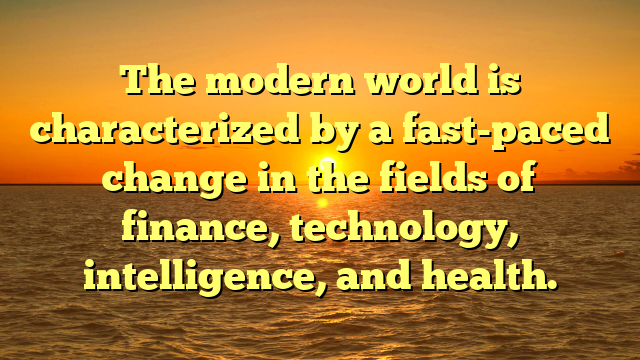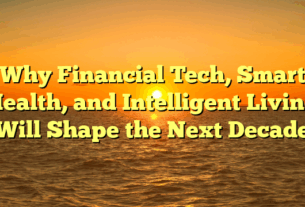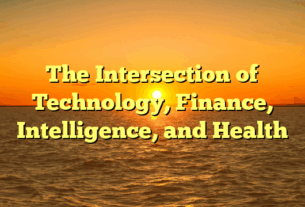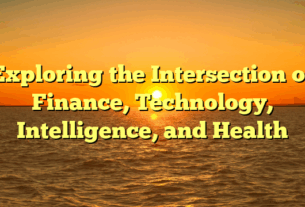These domains are interconnected and shape our everyday lives, but they also offer new opportunities for individuals, businesses, and governments to innovate, improve, and thrive. This article explores how these fields combine, intersect, and impact modern living, ultimately contributing to a more efficient, informed, and healthy global landscape.
—
1. Finance: The Backbone of Innovation
The financial sector has undergone a dramatic transformation with the advent of technological advancements, blockchain, and digital currency. The traditional financial systems are undergoing disruption by innovations like cryptocurrency and blockchain. These innovations are changing the way we think about money, investment, and transactions.
Blockchain technology, for example, provides an immutable way to track transactions without the need for centralized intermediaries like banks. This reduces transaction times, and boosts transparency. Moreover, cryptocurrencies like Bitcoin and Ethereum provide individuals with new investment opportunities and challenge traditional banking systems.
Another noteworthy trend in finance is the rise of AI and ML technologies. These technologies enable banks, investment firms, and insurers to improve decision-making, manage risk, and enhance customer service. The role of AI in finance is becoming more pronounced, with algorithms shaping capital allocation. Financial advisors can now leverage AI tools to offer insights on investment opportunities, forecast market changes, and mitigate financial risks.
—
2. Technology: Shaping the Future
Technology, as a catalyst for progress, is revolutionizing how we interact, create, and think. From Gerhanatoto and wearables to artificial intelligence and quantum computing, technology has transformed every aspect of our lives.
In the field of healthcare, innovations such as telemedicine and wearable health devices are improving patient care and access. These technological advancements give individuals the ability to track their well-being, consult doctors online, and take control of their health.
The integration of AI in technology is also leading to breakthroughs in automation, problem-solving, and communication. Machine learning algorithms and AI tools are redefining business practices in diverse sectors, including healthcare, manufacturing, and customer service. For instance, chatbots, AI-driven medical tools, and autonomous machinery are paving the way for smarter solutions that streamline processes, reduce human error, and elevate service quality.
—
3. Intelligence: The Human Brain Meets Artificial Systems
Intelligence, both human and artificial, plays a critical role in shaping our understanding of the world. Human intelligence has been enhanced through advancements in education, technology, and global connectivity. Meanwhile, artificial intelligence (AI) has introduced a game-changing element to the concept of intelligence.
The rise of AI has revolutionized areas such as image recognition, data processing, and decision-making systems. These systems mimic human cognition and are revolutionizing industries through predictive analytics. AI is already contributing to medicine, technology, and research, providing solutions that were once unimaginable.
However, the fusion of natural intelligence and machine learning opens up debates on ethical dilemmas, data privacy, and autonomy. It is essential to develop AI in a way that safeguards human interests and rights.
—
4. Health: The Role of Technology and Intelligence in Wellness
Advances in healthcare have become more reliant on cutting-edge technology and intelligent systems. Wearables like fitness trackers, telehealth tools, smartwatches, and health monitoring apps are allowing people to track their health, manage conditions, and make better lifestyle choices. AI in healthcare, is improving healthcare delivery, decision-making, and personalized care.
Virtual healthcare services have increased accessibility to healthcare services in rural regions and developing countries. This technology is democratizing healthcare for people who would otherwise have limited access to care. Additionally, advancements in genetic research are allowing for more effective and individualized therapies.
—
Conclusion
In conclusion, the fusion of these four transformative fields—finance, technology, intelligence, and health— is leading to a smarter, healthier, and more efficient society. As we move forward into this new era, where finance, technology, and AI intersect, Leveraging these innovations will be crucial for individuals, businesses, and governments to stay competitive, relevant, and sustainable in the future.



